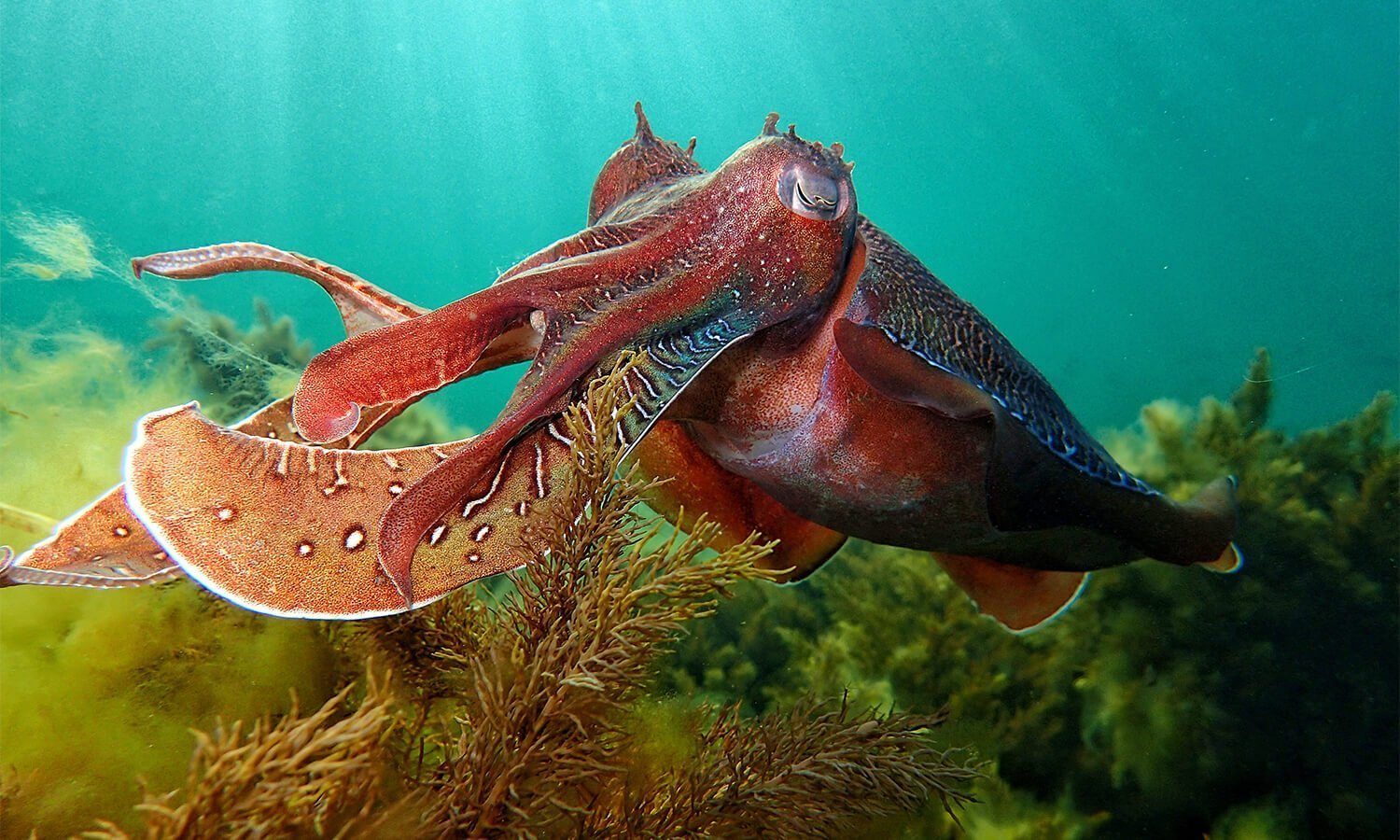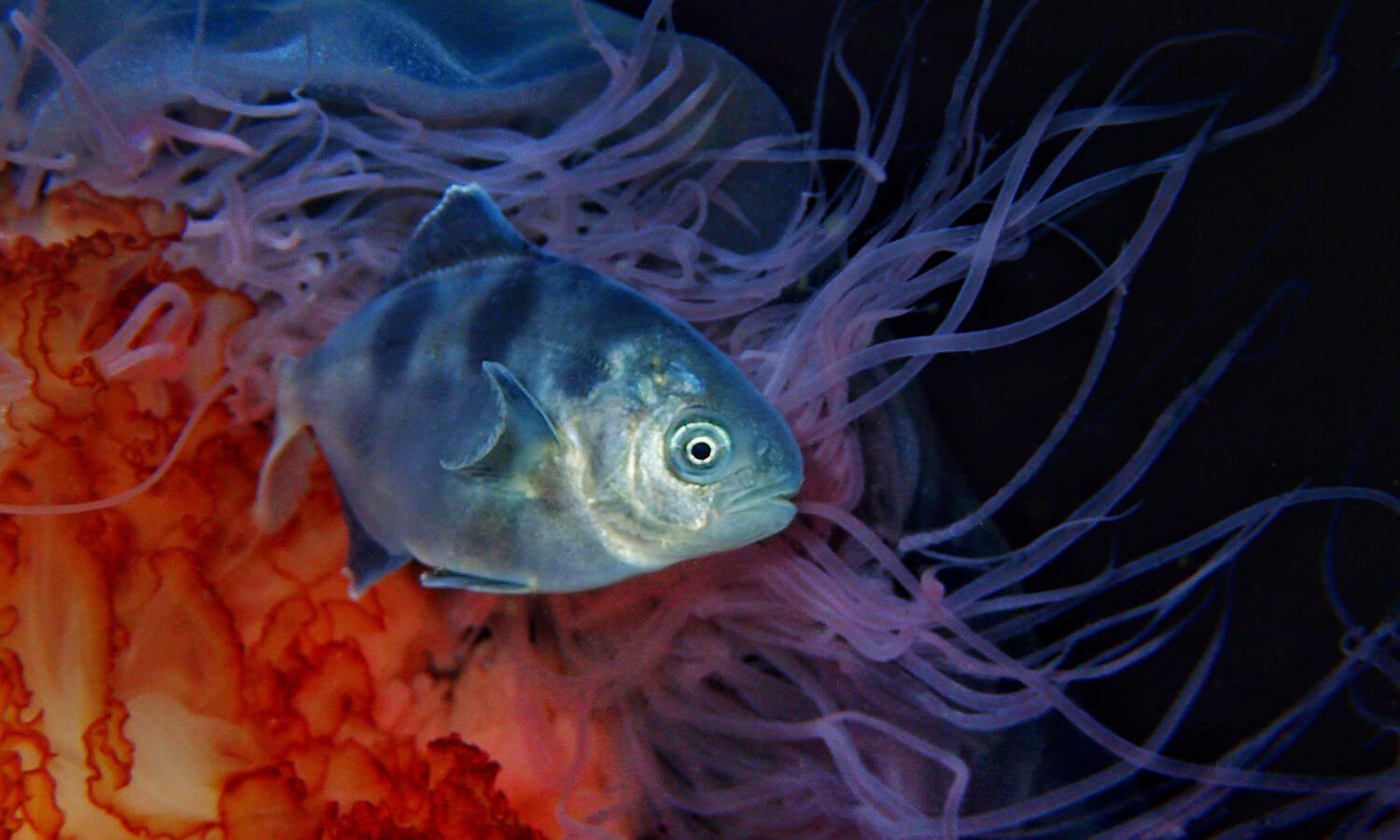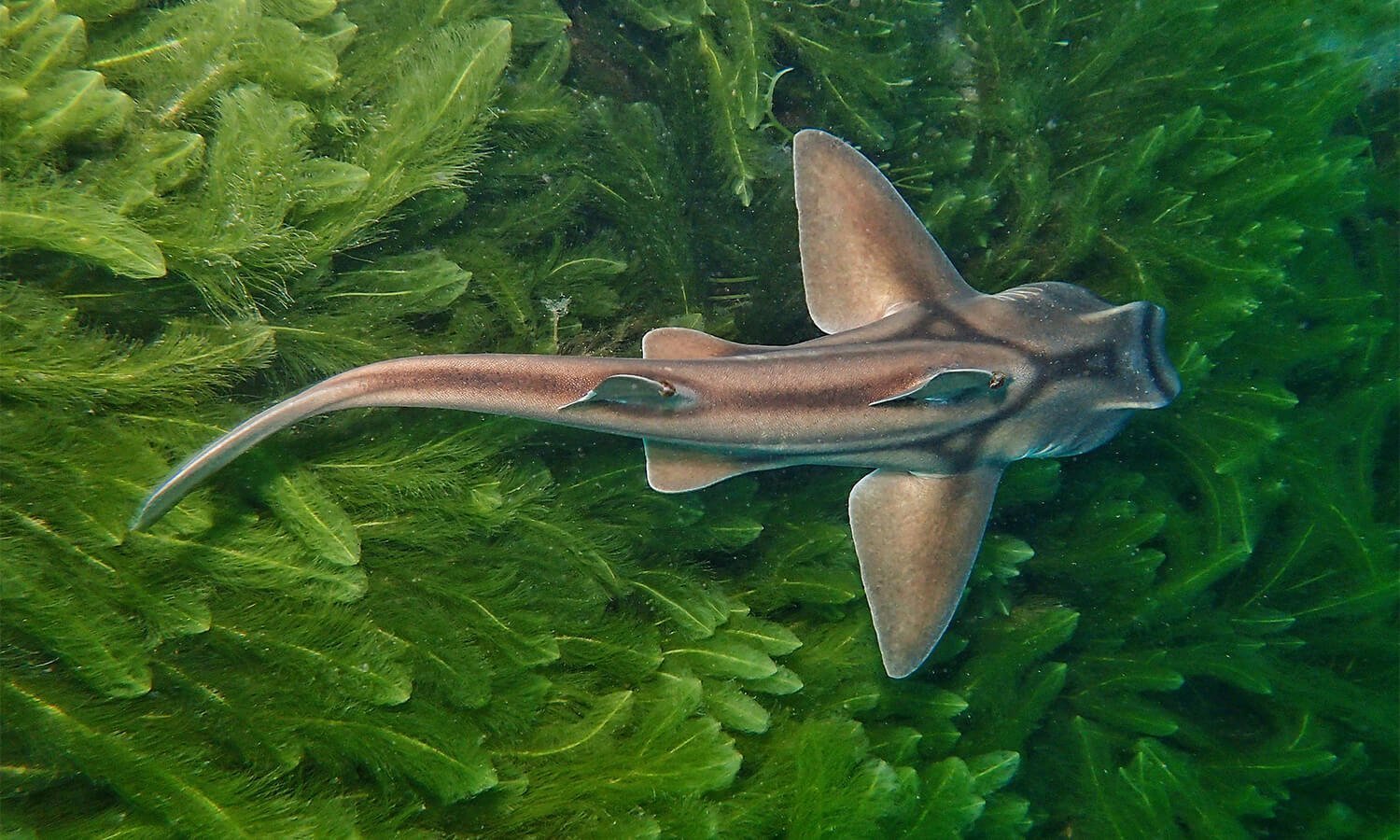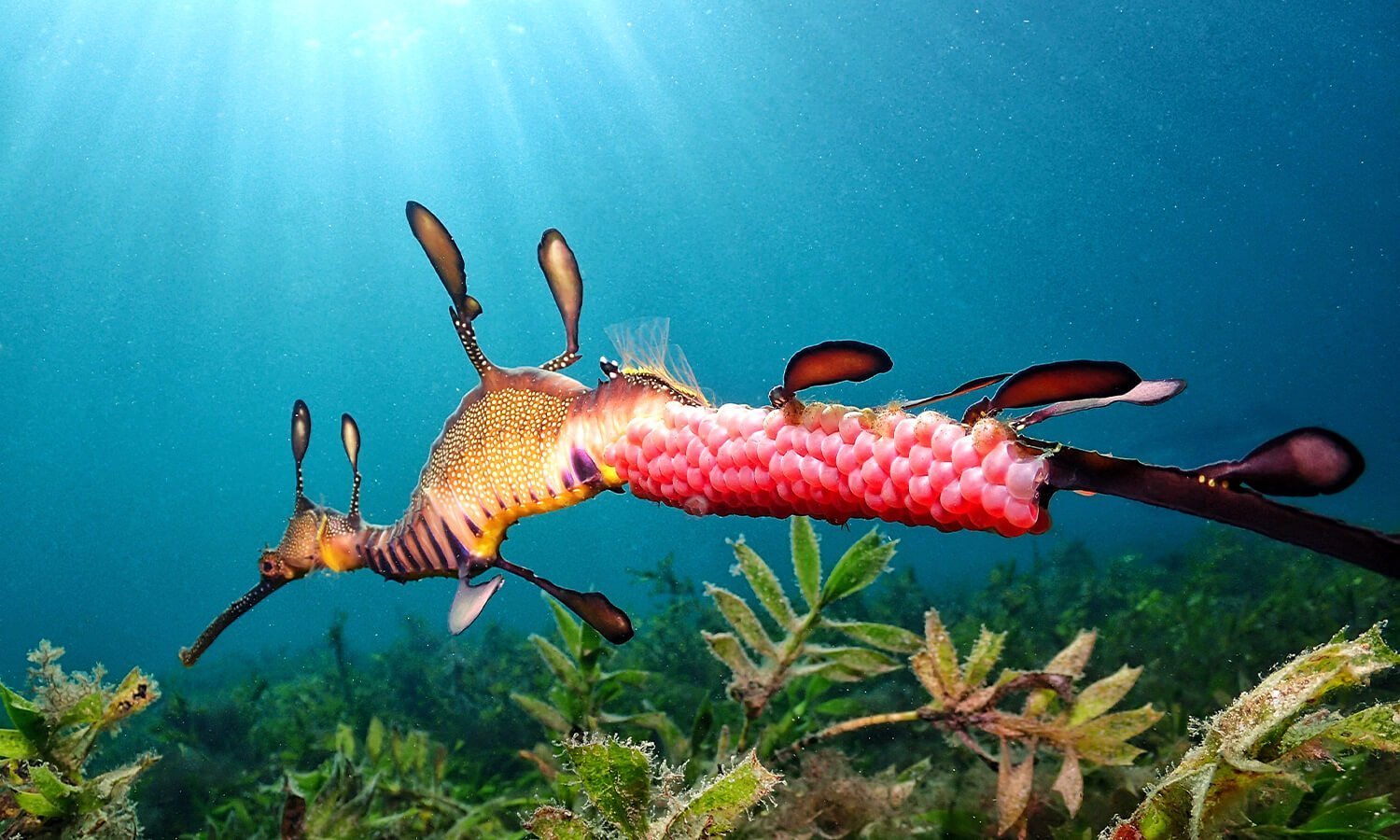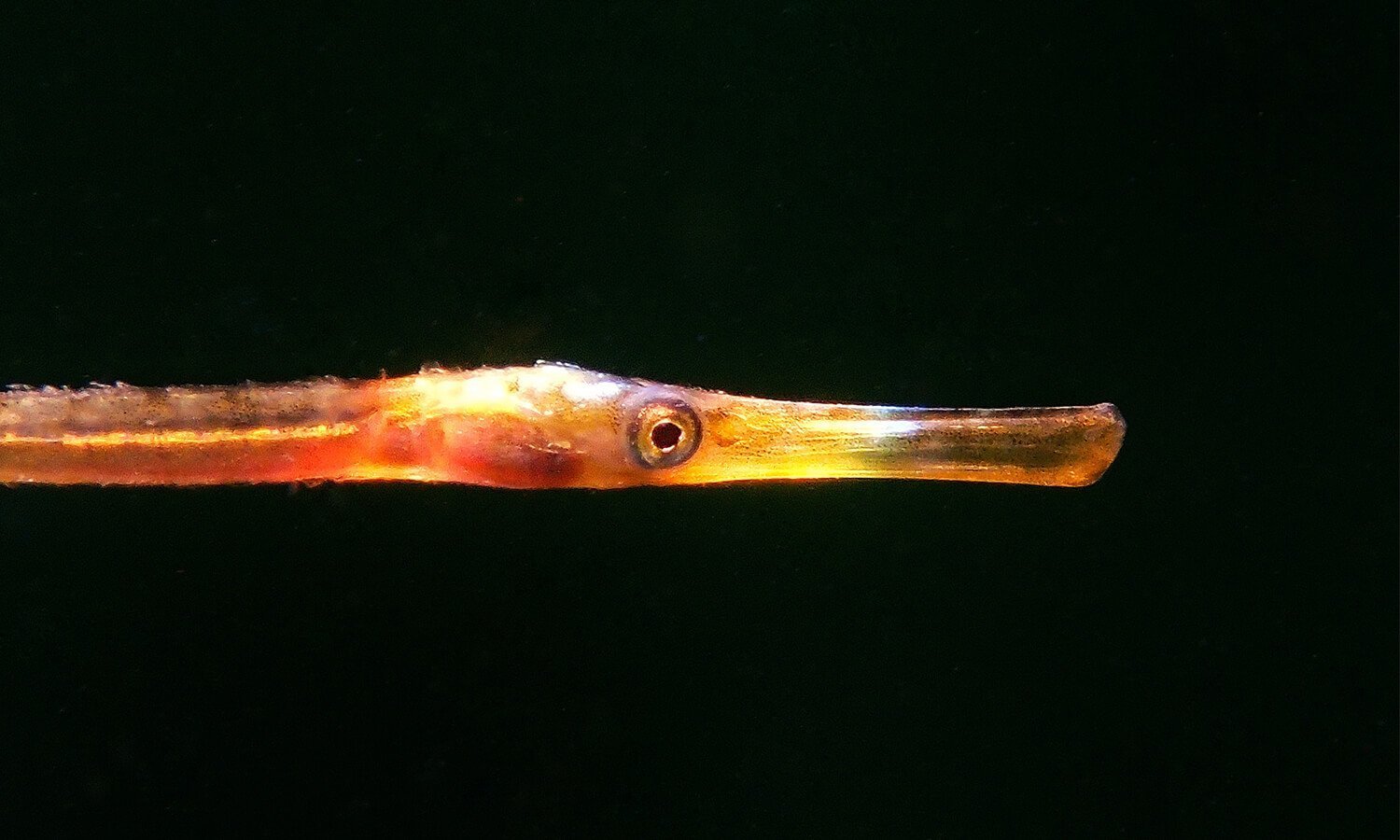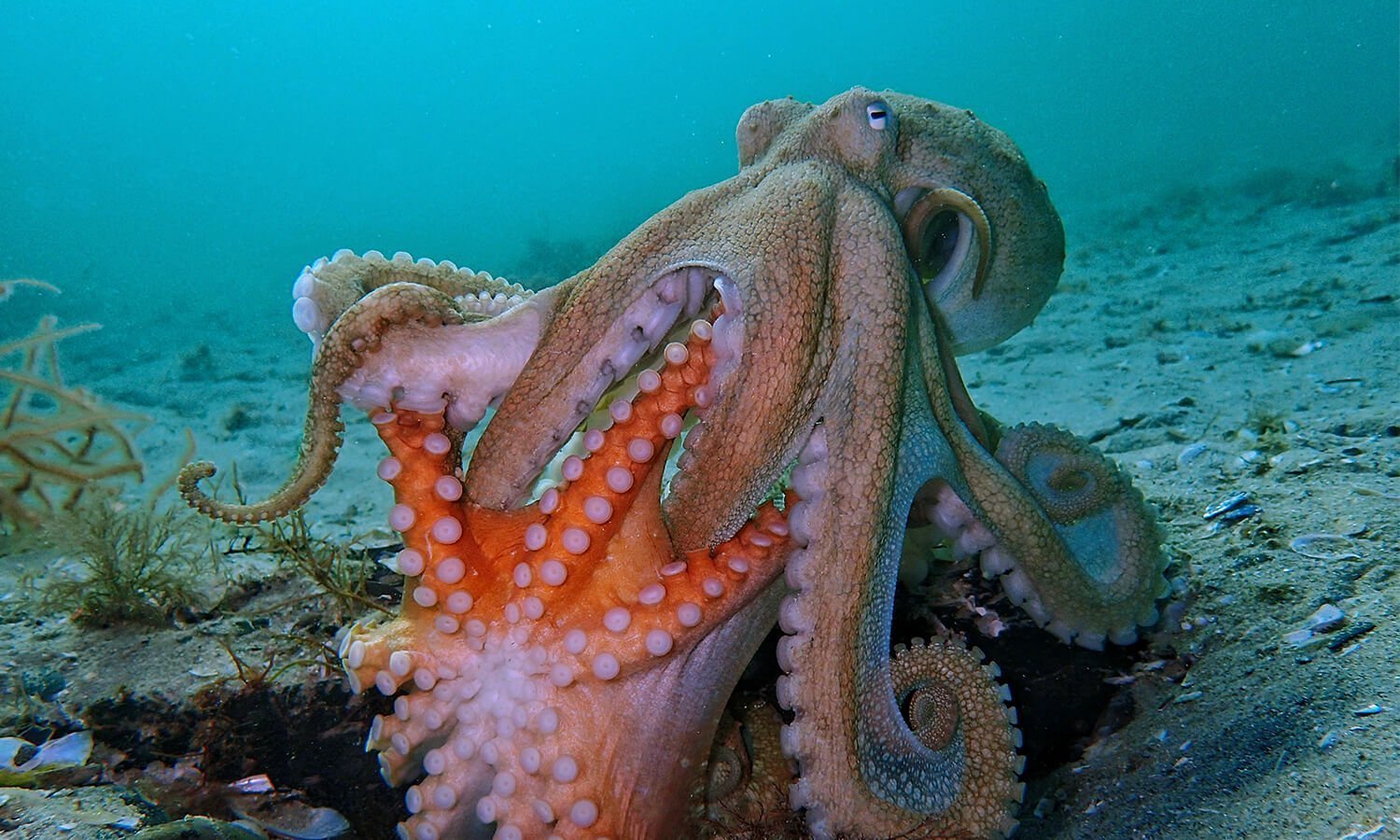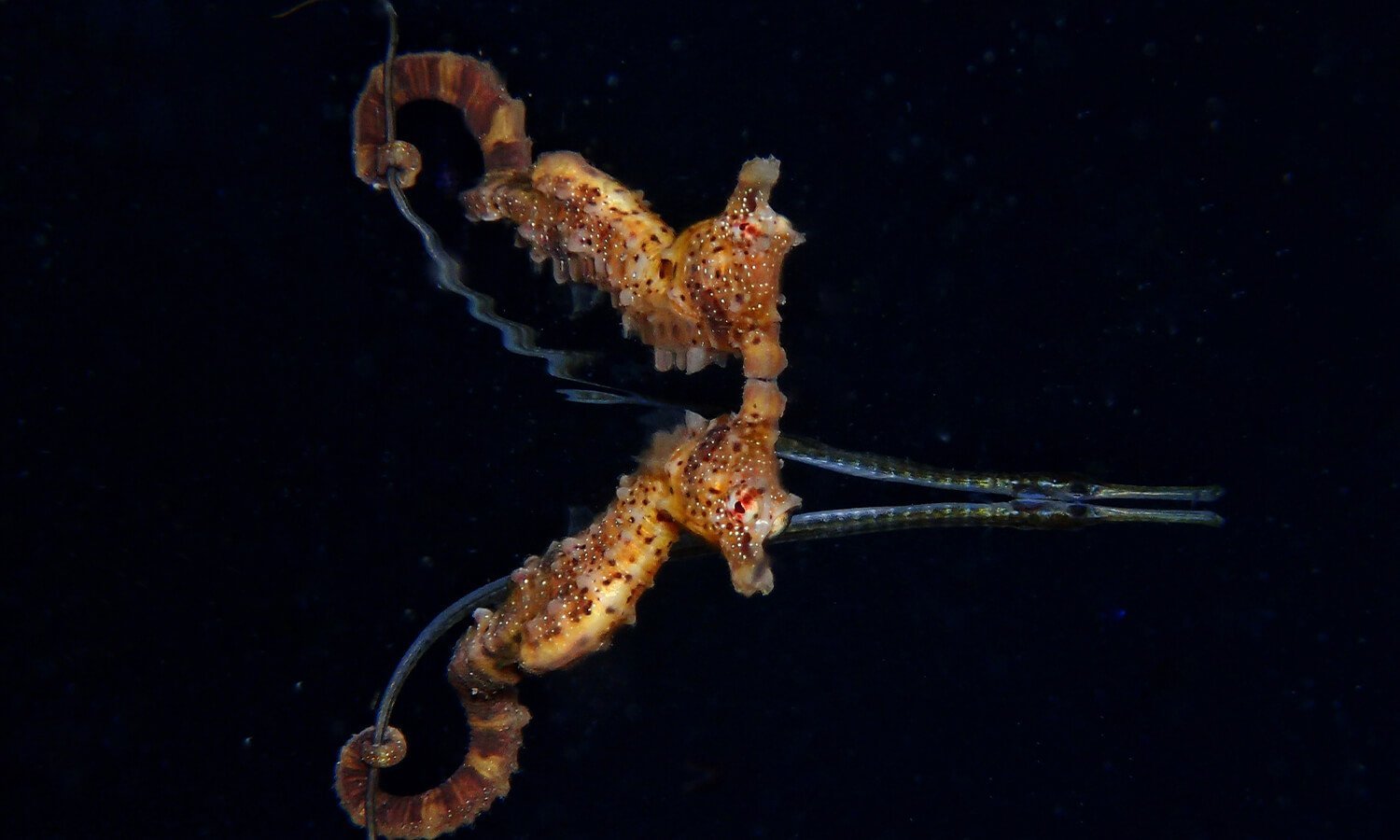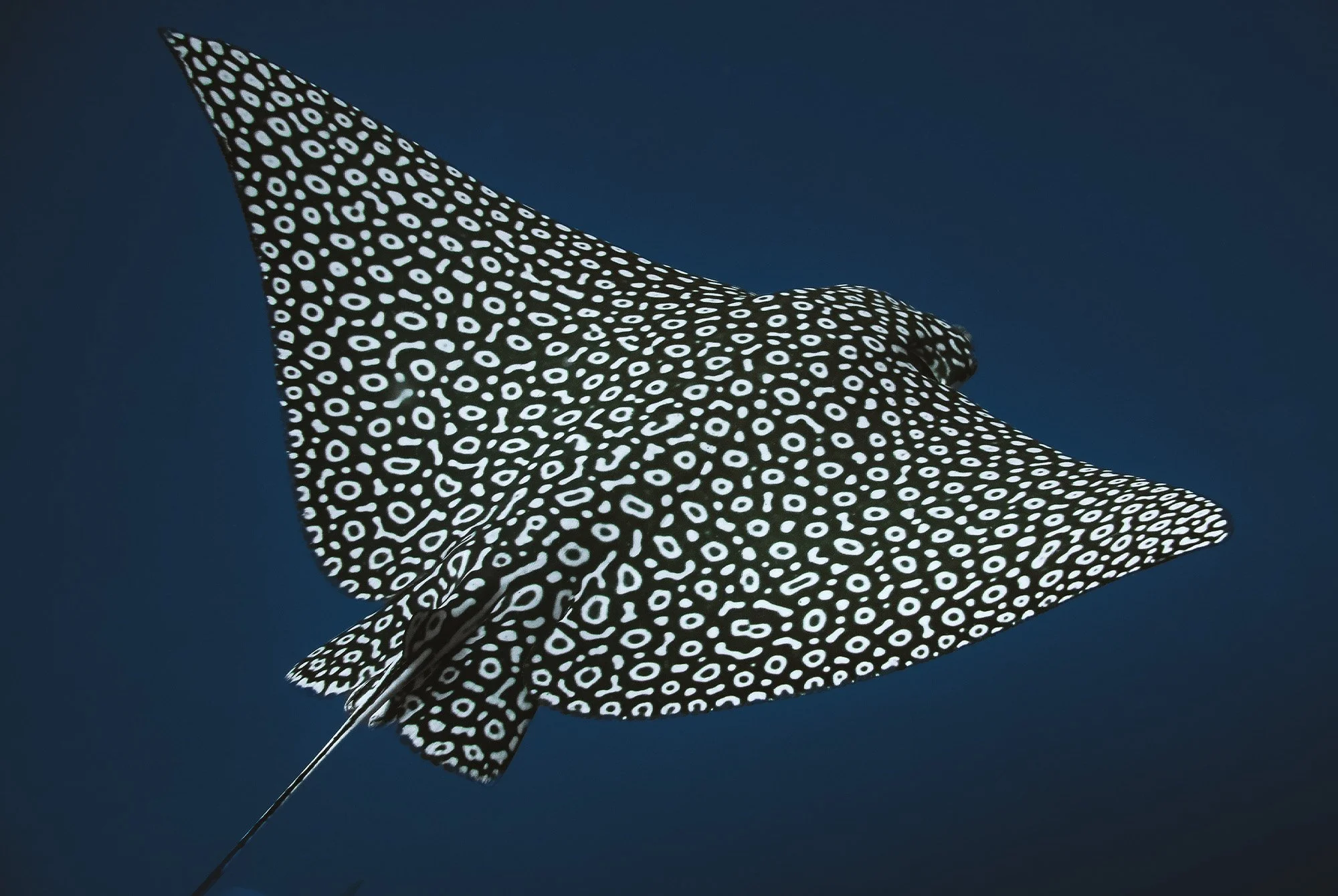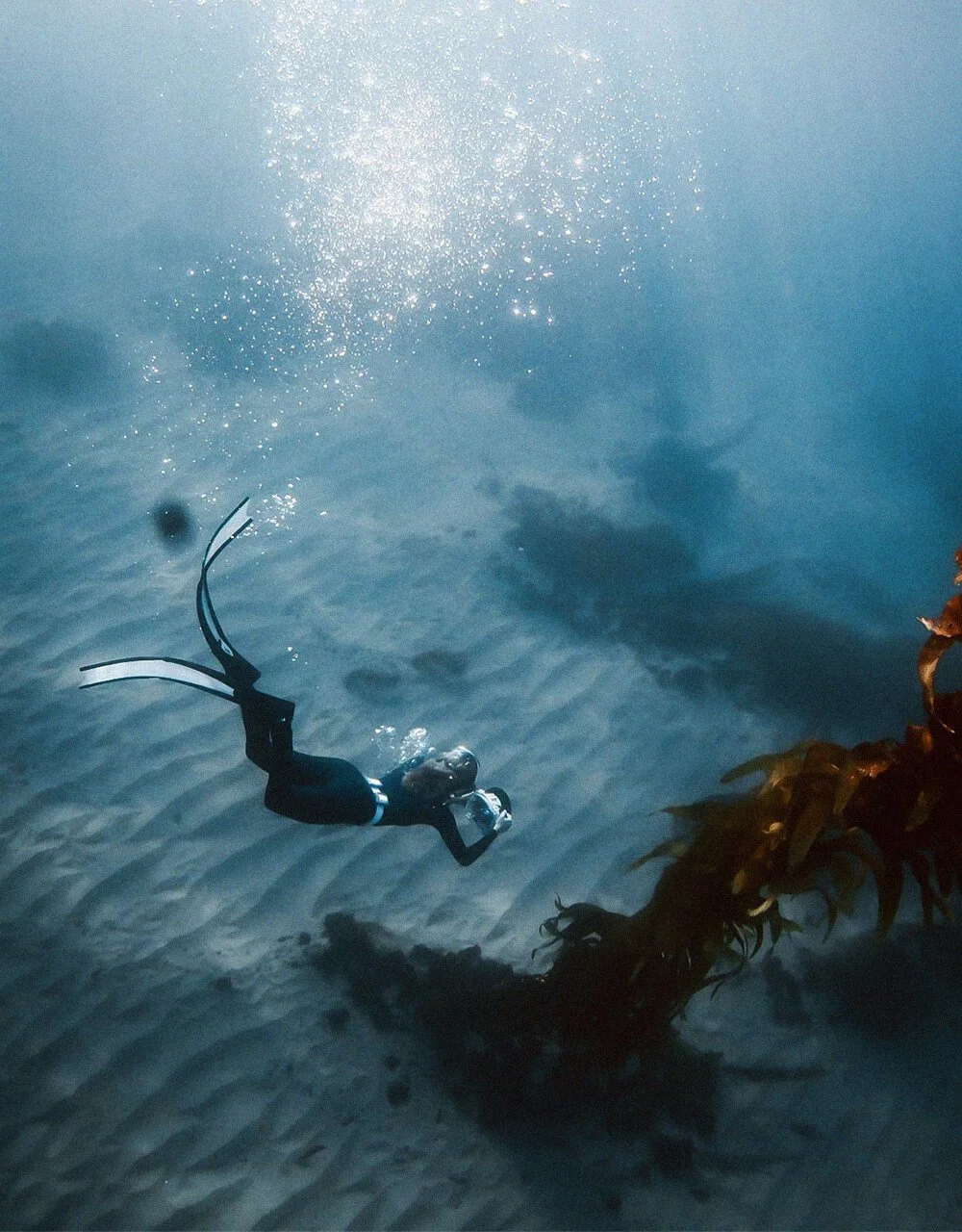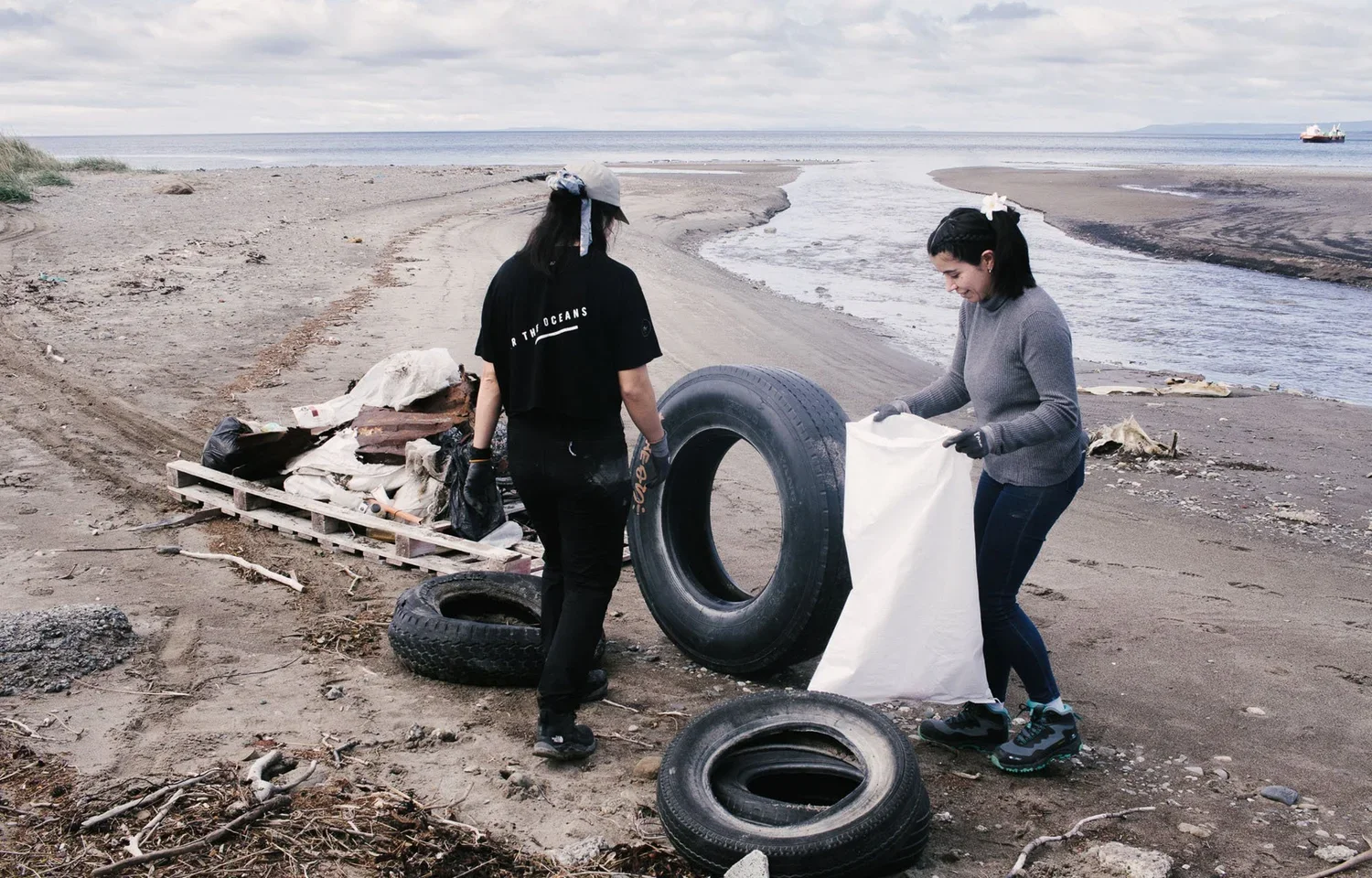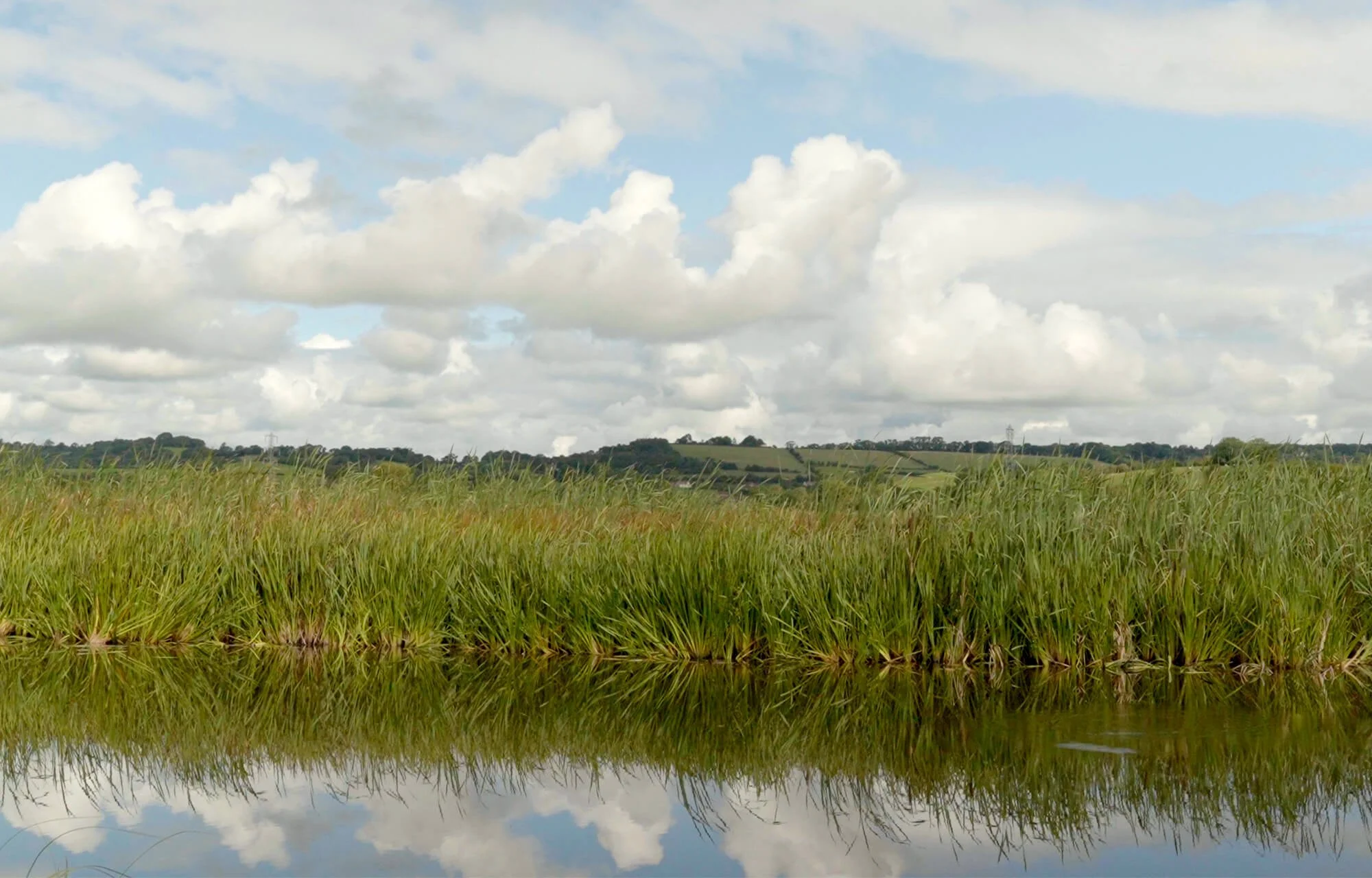IN FOCUS: Jules Casey
Six years ago, Jules Casey’s life changed forever. We speak to the marine photographer and free diver about life in the water off the coast of Melbourne, Australia.
Six years ago, Jules Casey’s life completely changed. On a trip swimming with whale sharks with a freediving photographer, she was fascinated by their ability to hold their breath for such a sustained period of time. On her return, she dedicated her life to learning how to do it, practicing every single day. Not content with mastering freediving, three years ago she added underwater photography to her skillset and began to document marine life underneath the piers on the Mornington Peninsula, an area of southeastern Melbourne, Australia.
Her Instagram account @onebreathdiver is a vivid library of life in the oceans, capturing a wide array of sea creatures close up – from octopus protecting their eggs, to pregnant seahorses, to playful rays and majestic great white sharks. Sadly, it isn’t just the beauty of our oceans that she captures, but also the human-caused fragility. One video shows a discarded shopping trolley and sunglasses on the seafloor, another photo shows a beer can on the seabed, another shows octopus habitats tampered with. Mostly though, her work is a reminder of the magic taking place underwater and a diary of her life diving every day. For our latest In Focus interview, we caught up with Jules to talk about her ocean journey, how freediving makes her feel, and the life she encounters off the coast of Melbourne.
Q & A
When and how did your passion for diving and photography begin?
Six years ago a trip to Ningaloo Reef in Western Australia changed my life dramatically. While swimming with whale sharks I was impressed by the freediving photographer's ability to stay underwater for several minutes on a single breath of air. Every day from that moment on was spent learning how. Firstly becoming a freediver and then eventually learning underwater photography. I headed off to Bali to learn to freedive, then on my return to Australia I discovered that my neighbor was a freediving instructor so I continued to progress under his training program. For the first three years I dived with a GoPro & focused on behavioral videos. Eventually I purchased a second hand underwater camera and spent almost every day in the water learning how to take photographs.
Each time you go out into the water where you live in Mornington Peninsula, what type of marine wildlife do you typically encounter?
Most of my dives are under the piers on the Mornington Peninsula which attract a diverse range of marine wildlife. A variety of rays, from our large smooth stingrays to banjo sharks and smaller stingarees. There are loads of cephalopods including the world's second largest, the Maori octopus and the world's deadliest, the Southern blue-ringed octopus. An extensive variety of nudibranchs, fish and seahorses are pretty much guaranteed on every dive.
What's the most beautiful thing you've encountered while out in the water?
It's difficult to choose what would be the most beautiful encounter because I've had so many. Interacting with our bay's wild bottlenose dolphins and the local Australian fur seals is always a fun day in the water. Curious octopus encounters are pretty awesome and watching seahorses doing their mating dancing is also spectacular.
Do you think people really understand how much beauty is out in our oceans?
Most people that I meet on my local piers I encourage to check out my Instagram and they are totally blown away by the beautiful creatures I film and photograph. They are often most surprised by how colorful everything is in our chilly waters.
I watched a video of you pulling a rubbish truck balloon out of the water - how bad an issue is plastic pollution on the Mornington Peninsula?
The Mornington Peninsula is a popular holiday destination and we see a significant increase in litter over the holiday periods, especially during the summer holidays. An increase in litter ending up in our Port Phillip Bay has an impact on our marine life. My dive buddies and I are having to rescue more wildlife during this period than normal, mostly due to fishing line entanglement. I often film the rescues for awareness and educational purposes.
What are the benefits that you get from freediving? How does it make you feel?
I absolutely love the feeling of weightlessness and freedom when freediving. I am relaxed & living in the moment. I find the marine life are less disturbed by my presence & more likely to accept me into their environment.
What's your favorite photograph that you've taken, and why?
My absolute favorite photo is the 'Circle of Life' which is a female pale octopus in a pipe surrounded by her eggs. I'm particularly proud of the shot because I worked hard to capture this moment. Many dives spent just observing her behavior before she eventually moved into the perfect position. The shot perfectly tells her bitter-sweet story.
If there's one part of our ocean that you could dive and take photos in, which would it be and why?
The Solomon Islands has been a dream trip of mine which is about to become a reality. I won a photography competition and the prize was a Liveaboard on Bilikiki in the Solomon Islands. The diversity of marine wildlife is massive and I'm looking forward to diving in warm, clear waters.
“I absolutely love the feeling of weightlessness and freedom when freediving. I am relaxed & living in the moment. I find the marine life are less disturbed by my presence & more likely to accept me into their environment.”
Jules Casey

